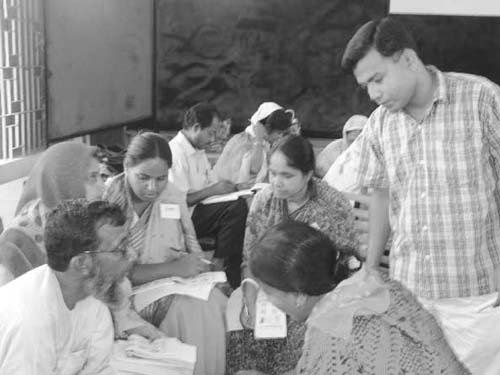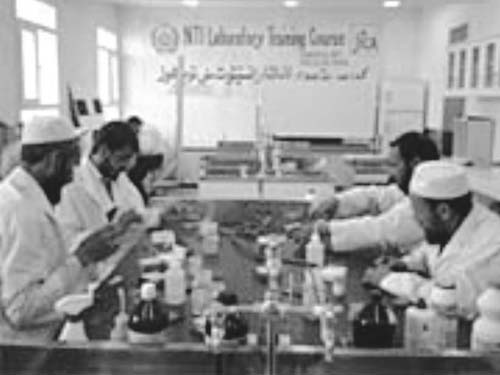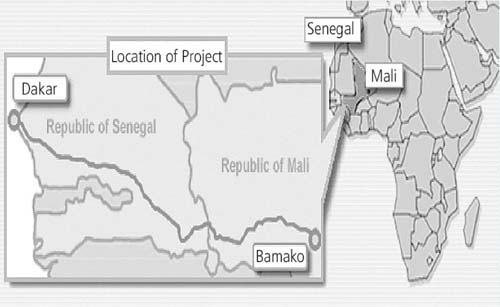Japan's Official Development Assistance White Paper 2006
Box I-4. Examples of Aid Collaboration in Bilateral Assistance and Assistance Provided through International Organizations
Collaboration with UNICEF (Three Minute Mathematics Drills in Bangladesh)
Japan is implementing a number of science and mathematics projects under the technical cooperation scheme. Through one of these projects, UNICEF is disseminating mathematics workbooks developed by JOCV members. This is an example of how assistance was made more effective with the utilization of the know-how Japan possesses in science and mathematics education and the knowledge about education for the socially vulnerable, as well as the network of activities at the grass-roots level possessed by UNICEF. Through bilateral assistance, it becomes possible to provide assistance to remote areas, ethnic minorities, and other hard-to-reach groups, and this kind of assistance also contributes to improving the quality of education.

Teachers enthusiastically receiving training in mathematics drills
Collaboration with WHO (Afghanistan JICA TB Control Project)
Japan is implementing a project which aims to reduce the mortality rate of tuberculosis patients in Afghanistan through the transfer of high-quality tuberculosis treatment technology. In line with the model treatment method recommended by WHO, Japan is providing technical cooperation that includes technological guidance for medical departments testing for the bacteria responsible for tuberculosis, human resource development, and testing system management. As a part of these efforts, through technical cooperation projects by JICA, the Government is providing assistance such as the dispatch of experts, local training, and the provision of equipment. Japan is also closely collaborating with WHO on budget and assistance policies to improve efficiency, and this approach has been very effective.

Training for medical laboratory technicians specializing in tuberculosis (Photo: JICA)
Collaboration with the African Development Bank and Others (Development of Trunk Road in the Southbound Bamako-Dakar Corridor in Senegal and Mali)
This is an international project for constructing and improving the international corridor between Senegal and Mali, which is approximately 1,000 kilometers long, and developing the related infrastructure. Through grant aid Japan is studying the construction of three bridges for which there is an urgent and strong need in Mali. Japan is using a yen loan to provide assistance for the development of some roads in Senegal by way of joint financing with the African Development Bank. The Islamic Development Bank, the African Development Bank, Germany's Kreditanstalt fur Wiederaufbau (KfW), the European Development Fund, and other international organizations are developing other sections of the road.

Location of project (Photo: JBIC)


 Next Page
Next Page